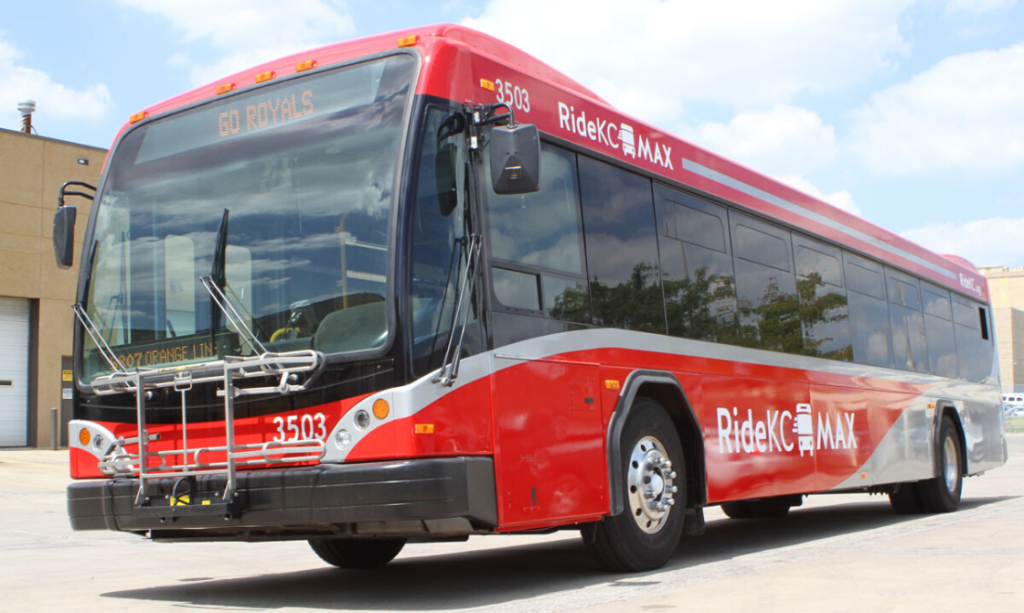MPTA member Mid-America Regional Council (MARC) conducted a comprehensive study of the Zero Fare Transit program in conjunction with the University of Kansas Transportation Center, the University of Missouri – Kansas City Bloch School and with support from KCATA. The purpose of the study was to analyze the Zero Fare model impact on internal performance measures such as agency revenue and costs as well as external impacts including economic, equity and environmental.
The study explored two primary questions:
- Is there an economic benefit for individuals as well as the entire city, region and agency, to the proposed zero-fare program?
- What policy interventions are necessary to arrive at a sustainable zero-fare program that provides ongoing positive economic benefit?
Various scenarios were explored regarding future implementation of a zero-fare program. The two main areas explored were a program that operates with no new public funding and a program that operates with new dedicated public funding from taxes, parking fees, development fees, etc. Key stakeholders were engaged throughout the process. On board rider surveys were conducted, and area leaders with knowledge of the zero-fare deployment were individually interviewed.
The study identified a number of key findings and with the potential for numerous benefits to the community. Those findings included:
- The net amount of lost fare revenue in 2020 was between $8 million and $10million regionally, which was replaced by funding through the Federal CARES Act. While some costs related to fare collection were reduced or eliminated, they did not fully offset revenue losses or additional costs due to increased service demands. For the zero-fare program to be sustainable, either additional revenues or new cost savings must be found.
- RideKC ridership decreased less and recovered more quickly during the 2020 pandemic when compared to other peer metro transit systems. Although ridership dropped to 58% of pre-pandemic levels in May of 2020 it had recovered to 80% by October 2020. National transit ridership remained at 40% of pre-pandemic levels. A combination of zero fare and RideKC’s higher share of transit dependent riders compared to peer systems may have impacted these trends.
- Zero fare was a popular pandemic response measure among riders, with 88.3% of those surveyed either highly satisfied or satisfied with it in 2020.
- Security incidents declined by 39% from 2019 to 2020.
- MARC estimates that continuing zero fare could increase ridership on the existing fixed-route network by 31% for the Kansas City region.
- MARC’s travel demand model also suggests that increased ridership due to zero fare could result in annual reduction of approximately 7 thousand tons of carbon dioxide emissions.
- Community leaders were predominantly supportive of continued zero fare — albeit with some concerns about the opportunity cost of lost fare revenue — and were primarily interested in understanding impacts related to cost and funding, equity, service characteristics and ridership.
Potential equity impacts of suspended fair collection were important to a majority of stakeholders interviewed for this study
If the program is continued, the main equity impacts are likely to derive from how lost fare revenues are recovered. If lost fare revenue is replaced by other locally generated sources such as sales taxes, the result is likely to be a slight transfer of revenues from higher income households to lower income riders, as discussed elsewhere in this report. If lost fare revenue is addressed by cuts in transit services, the benefits of no fare to riders may be offset by reduced service frequencies or coverage resulting in reduced access to jobs, education, healthcare and other opportunities.
KCATA serves multiple counties in two states. In order for zero fare to be sustainable in each of these other jurisdictions, they would need to agree to increased compensation of approximately $4 million collectively. The full study is available at:
https://www.marc.org/Transportation/Plans-Studies/Transit-Mobility/Transit-Zero-Fare-Impact-Analysis
